A Financial Checklist for Living in Emerging and Developing Economies
To enjoy your ideal expat life, you need to embrace proper planning and have an awareness of the challenges of building a life overseas. Whether you’re a retiree or a professional on an extended stint as an expatriate, here are some financial issues you need to consider as an expat in an emerging economy.
Cost of Living
|
Yes |
No |
|
|
|
|
Have you researched cost-of-living expenses in your country of residence? |
|
|
|
Have you researched historical inflation rates in your country of residence? (Tip: In developing countries, inflation rates can be much higher than in the developed world.) |
|
|
|
Do you know how much it will cost to sustain your desired lifestyle? (Tip: Some items, such as housing, school fees, and cars, can be very expensive in the developing world.) |
|
|
|
Do you understand how much the value of your home currency, or the currency you “think” in, can fluctuate against the local currency you plan to live in, in the short term and in the long term? |
Banking
|
Yes |
No |
|
|
|
|
Will you have access to a satisfactory range of banking products? |
|
|
|
Do you know what documentation you’ll need to open a bank account? (Tip: You may need to show a work permit, valid visa, utility bill, or lease agreement.) |
|
|
|
Are joint accounts offered at the bank you’ve selected? |
|
|
|
Will a non-working spouse be able to access accounts you set up? |
|
|
|
As a foreigner, will you be able to borrow money in the local currency? Will you be able to get a credit card in the local currency? |
Investing
|
Yes |
No |
|
|
|
|
Do you plan on investing overseas? |
|
|
|
Do you understand how you may not be protected against financial fraud in the offshore world? Are you prepared to deal with a less developed, less regulated, and often higher-risk investment market than may exist in your home country? |
|
|
|
Have you researched the fees you’ll pay when investing overseas? |
|
|
|
Are you familiar with how your home country handles overseas investments and what regulations, taxes, and penalties you may be subject to? |
Property
|
Yes |
No |
|
|
|
|
Will you be able to buy property in your country of residence? |
|
|
|
Is there a developed mortgage market for foreigners? |
|
|
|
Will you need to pay cash for any property you purchase? |
|
|
|
Are you aware of any taxes you may have to pay when you sell property overseas (for example, local taxes or capital gains taxes if you’re a U.S. citizen)? |
Insurance
|
Yes |
No |
|
|
|
|
Have you researched insurance options in your planned country of residence? |
|
|
|
Will you be able to obtain adequate medical insurance? |
|
|
|
Will your home country medical policy cover you if you are spending an extended amount of time abroad? |
|
|
|
If you have an expat health insurance policy, are you aware of the policy’s limits and restrictions? |
|
|
|
If you need medical care, will you be able to return to your home country and access a national medical program? |
|
|
|
Will you be able to obtain adequate term life or property insurance? |
Taxes
|
Yes |
No |
|
|
|
|
Are you prepared to deal with a more complex tax situation as an expat? |
|
|
|
Do you know what taxes you’ll need to pay, both in your home country and country of residence? |
|
|
|
Is there a double-taxation agreement in effect between your home country and your country of residence? |
|
|
|
If a double-taxation agreement exists, do you understand how it affects you? |
Retirement Planning
|
Yes |
No |
|
|
|
|
Will you have access to your home country’s national pension plans or government-incentivized retirement savings structures? |
|
|
|
Will you be able to participate in local retirement savings schemes? |
|
|
|
If so, will those schemes allow you to adequately prepare for retirement? |
|
|
|
Have you analyzed how your long-term cash flow may be affected by a move overseas? |
Estate Planning
|
Yes |
No |
|
|
|
|
Are you prepared to deal with cross-border estate planning issues? |
|
|
|
Will you be considered a resident of your home country when it comes to estate/inheritance tax? (Tip: While you may be a non-resident for income tax purposes, that isn’t always the case for estate tax.) |
|
|
|
Have you developed a coordinated set of estate planning documents that address both home country and country-of-residence issues? |
|
|
|
Are you familiar with trust law, as well as recognition of powers of attorney, living wills and health care directives, in your country of residence? |
Professional Resources
|
Yes |
No |
|
|
|
|
Will you have access to experienced professionals who can help you with cross-border planning issues? |
|
|
|
Will you have access to professionals who are focused on providing objective advice, rather than just selling a product (e.g., insurance, real estate, investments)? |
Your Results
Make a note of which questions you answered with “No,” as these could indicate a gap in your expat financial plan. To address that gap, you may benefit from further research or talking to a financial professional who is experienced in expat financial issues. Fully evaluating your financial situation in advance can help you get more control over your finances and enjoy all the rewards that come with life as an expat.
This is an updated version of an ebook that appears on www.crevelingandcreveling.com
Additional Resources
Living in Emerging Markets: What Many Expats Don't Know, but Should
How Exchange Rates Affect Your Expat Currency Decisions
Foiling Cybercriminals: 11 Tips to Keep Expat Financial Accounts Safe
Looking Past the Sales Pitch: Analyzing an Offshore Insurance-Linked Investment Scheme
Expat Financial Planning: Tips to Insure Against Risk
For American Expats: A U.S. Tax Form Checklist
How Long Would Your Money Last If You Retired Today? An Expat Case Study
Basic Estate Planning Documents Expats Should Have
About Creveling & Creveling Private Wealth Advisory
Creveling & Creveling is a private wealth advisory firm specializing in helping expatriates living in Thailand and throughout Southeast Asia build and preserve their wealth. The firm is a Registered Investment Adviser with the U.S. SEC and is licensed and regulated by the Thai SEC. Through a unique, integrated consulting approach, Creveling & Creveling is dedicated to helping clients cut through the financial intricacies of expat life, make better decisions with their money, and take the steps necessary to provide a more secure future.
Copyright © 2019 Creveling & Creveling Private Wealth Advisory, All rights reserved. The articles and writings are not recommendations or solicitations, and guest articles express the opinion of the author; which may or may not reflect the views of Creveling & Creveling.

